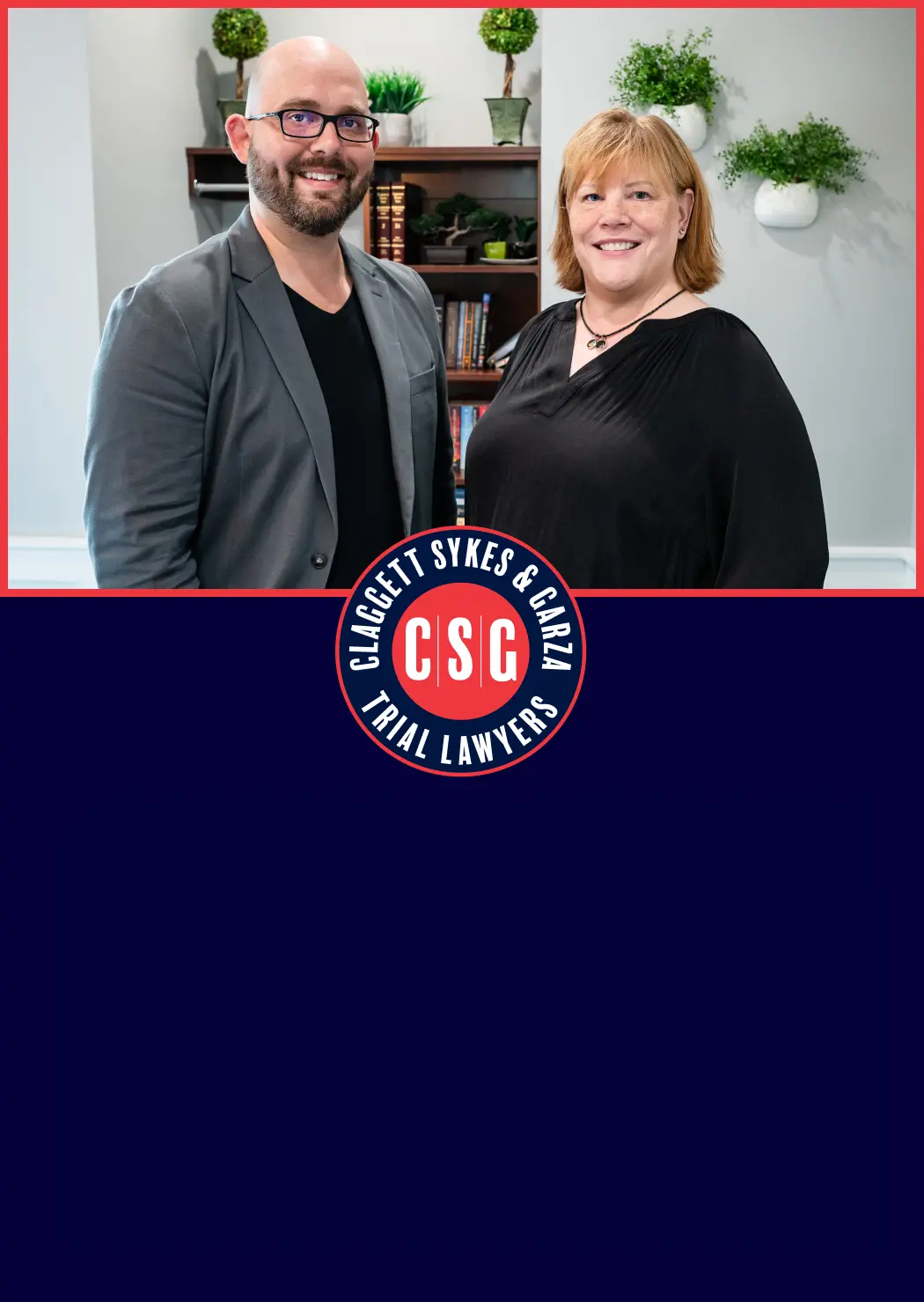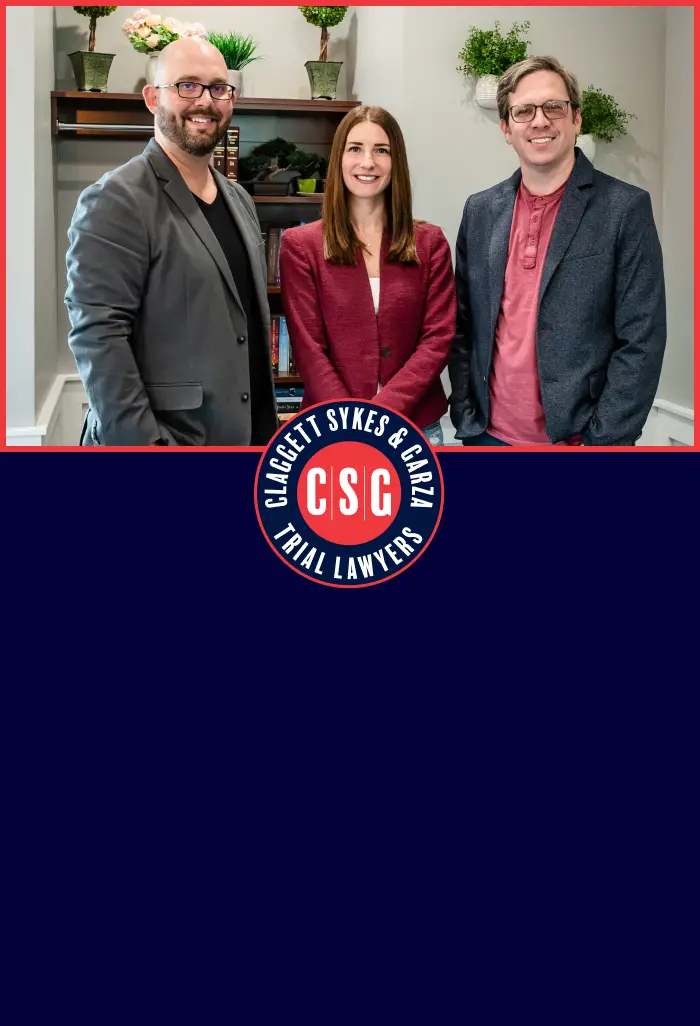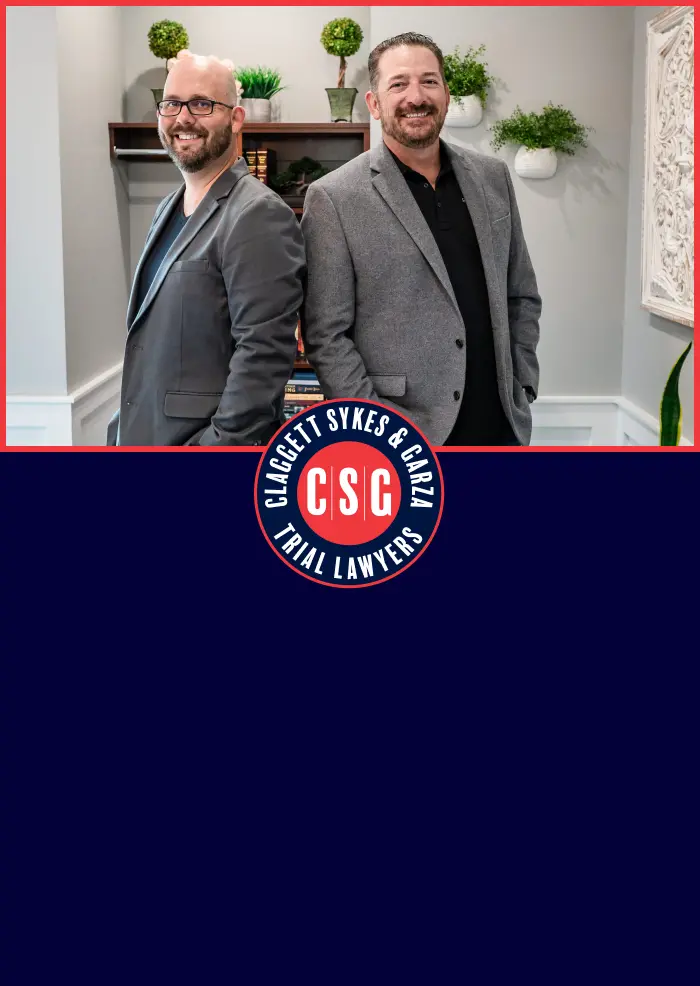
In Scotland, CT, medical malpractice cases necessitate the expertise of our specialized lawyers, who understand the complexities of healthcare law and your rights as a patient. Our Scotland medical malpractice lawyers are equipped to handle cases where you or your loved ones have suffered due to the negligence or errors of medical professionals.
With a deep knowledge of Connecticut’s medical malpractice laws, we scrutinize medical records, consult with medical experts, and build compelling cases against healthcare providers who fail to uphold the standard of care.
Our commitment to securing fair compensation covers medical expenses, lost wages, pain and suffering, and other damages incurred by you. With our dedicated medical malpractice lawyers from Scotland, you can navigate your legal journey with confidence, knowing your case is in capable hands. Don’t wait; reach out to a Scotland personal injury lawyer at Claggett, Sykes & Garza today.
Key Takeaways
- Understanding the legal framework of medical malpractice laws in Scotland, CT, is crucial in order to navigate the complexities of filing a lawsuit.
- There has been a rise in the number of medical malpractice cases in Scotland, CT, highlighting the need for a robust legal framework to protect patients’ rights.
- Misdiagnosis and surgical errors are common types of medical malpractice cases, and it is important to gather evidence and establish negligence in these cases.
- When choosing a medical malpractice lawyer in Scotland, CT, it is important to consider their specialization in this area of law, track record of success, access to necessary resources, reputation, and client service.

Get the Compensation You Deserve. Our Experienced Lawyers Can Help.
Understanding Medical Malpractice Laws in Connecticut
In Connecticut, medical malpractice occurs when a healthcare provider fails to deliver the standard of care expected in the medical community, resulting in harm to a patient. Our Scotland lawyers are well-versed in these laws, which are designed to protect patients and ensure they receive competent medical treatment.
The standard of care is determined based on what a reasonably skilled medical professional in a similar field and geographic area would have provided under the same circumstances.
To successfully pursue a medical malpractice claim in Connecticut, you must prove four essential elements:
- Professional Duty Owed to You: There must be a recognized relationship between the healthcare provider and you, establishing the provider’s duty to deliver care.
- Breach of Such Duty: You must demonstrate that the healthcare provider failed to adhere to the expected standard of care.
- Causal Connection: There needs to be a direct link between the provider’s breach of duty and the injury you suffered.
- Damages or Losses Incurred: You must have sustained damages, such as physical injury, financial loss, or both, as a result of the breach of duty.
Connecticut’s Statute of Limitations
Connecticut law also imposes specific time limits, known as statutes of limitations, for filing a medical malpractice lawsuit. Generally, you have two years from the date of the injury, or when you first discovered or should have discovered the injury, to file a claim. However, no claim can be filed more than three years from the date of the act or omission that caused the injury, with certain exceptions for minors or cases involving fraud, concealment, or intentional misrepresentation.
Our team at the Claggett, Sykes & Garza is prepared to handle the legal and medical aspects of your case. We work closely with medical experts to thoroughly investigate your claim, ensuring that all legal requirements are met and maximizing your chances of receiving the compensation you deserve.
Understanding these laws and working with our experienced medical malpractice lawyers can make a significant difference in the outcome of your case.
Common Types of Medical Malpractice Cases
With a solid understanding of the medical malpractice laws in Scotland, CT, it’s now essential to explore the various types of medical malpractice cases that commonly arise in this jurisdiction. Misdiagnosis and surgical errors are two significant areas where medical malpractice claims often emerge.
Misdiagnosis occurs when a healthcare professional fails to identify a patient’s condition accurately or provides an incorrect diagnosis. This can lead to delayed or improper treatment, causing harm or even death to the patient. Common examples of misdiagnosis include cancer being mistaken for a less severe condition, heart attacks being misinterpreted as indigestion, or mental health disorders being overlooked.
Surgical errors are another common type of medical malpractice case. These errors can occur during any surgical procedure, ranging from minor outpatient procedures to complex surgeries. Surgical errors can involve mistakes made during anesthesia administration, wrong-site or wrong-patient surgeries, leaving surgical instruments inside the patient’s body, or performing unnecessary surgeries. These errors can result in severe complications, infections, disabilities, or even fatalities.
When pursuing a medical malpractice case related to misdiagnosis or surgical errors in Scotland, CT, it’s crucial to gather sufficient evidence and establish negligence on the part of the healthcare provider. This may involve obtaining medical records, consulting with expert witnesses, and demonstrating that the healthcare professional deviated from the accepted standard of care.

Let Us Fight for Your Rights and Maximize Your Compensation.
How to Choose the Right Medical Malpractice Lawyer in Scotland, CT
When choosing a medical malpractice lawyer in Scotland, CT, it’s crucial to consider their experience, expertise, and track record of success in handling similar cases. Finding experienced attorneys who specialize in medical malpractice can significantly impact the outcome of your case. Here are four key factors to consider when selecting the right medical malpractice lawyer:
- Specialization: Look for a lawyer who focuses solely on medical malpractice cases. This expertise ensures that they have an in-depth understanding of the complex legal and medical aspects involved, giving you an advantage when building your case.
- Track record: Review the lawyer’s track record of success in handling medical malpractice cases. A lawyer with a proven record of obtaining favorable settlements or winning verdicts demonstrates their ability to represent their clients and maximize compensation effectively.
- Resources: Medical malpractice cases often require extensive investigation and expert testimony. Ensure that the lawyer you choose has access to the necessary resources, such as medical experts, to gather and present compelling evidence in your favor.
- Client testimonials: Read reviews or testimonials from previous clients to gauge the lawyer’s reputation and level of client satisfaction. Positive feedback indicates that the lawyer isn’t only skilled in legal matters but also provides excellent client service and communication throughout the entire process.

Experienced Personal Injury Lawyers Ready to Assist You.
The Legal Process for Filing a Medical Malpractice Lawsuit
To initiate a medical malpractice lawsuit, one must follow the specific legal process established in Scotland, CT. Certain steps need to be taken before filing a medical malpractice lawsuit, and it’s important to understand the process to ensure a successful outcome.
The first step in filing a medical malpractice lawsuit is to gather all relevant medical records and documentation. This includes medical records, test results, prescriptions, and any other relevant information that can help prove negligence in a medical malpractice case. It’s important to have a thorough understanding of the facts surrounding the case and to gather as much evidence as possible.
After gathering all necessary documentation, the next step is to consult with a medical malpractice lawyer. A skilled lawyer specialized in medical malpractice cases can help evaluate the strength of the case, determine if there’s enough evidence to proceed with a lawsuit and guide the plaintiff through the legal process.
Once the decision to move forward with a lawsuit has been made, the next step is to file a complaint with the court. The complaint should outline the details of the case, including the negligence of the healthcare provider, the damages suffered by the plaintiff, and the compensation sought.
After the complaint has been filed, the defendant will be served with the legal documents and will have a certain amount of time to respond. The defendant may choose to dispute the allegations or attempt to negotiate a settlement.
Proving negligence in a medical malpractice case can be challenging, as it requires demonstrating that the healthcare provider failed to provide a standard level of care. This often requires expert testimony from medical professionals who can attest to the negligence.
Seeking Compensation for Medical Malpractice Damages
After successfully navigating the legal process for filing a medical malpractice lawsuit in Scotland, CT, the next crucial step is to pursue compensation for the damages incurred due to the negligence of the healthcare provider. Seeking compensation for medical malpractice damages can be a complex and challenging process, but victims need to receive the financial support they need to recover and move forward.
Here are four key points to consider when seeking compensation:
- Compensation eligibility: To be eligible for compensation, it’s necessary to demonstrate that the healthcare provider’s negligence directly caused your injuries or worsened your condition. This requires gathering evidence, such as medical records, expert opinions, and witness testimonies, to establish a clear link between the provider’s actions and your harm.
- Proving negligence: In a medical malpractice case, proving negligence is crucial. It involves showing that the healthcare provider breached their duty of care by failing to meet accepted medical standards. This can be achieved by consulting medical experts who can analyze your case and provide their professional opinion regarding the provider’s actions or omissions.
- Calculating damages: When seeking compensation, it’s important to calculate the damages you have suffered accurately. This includes both economic damages, such as medical expenses, lost wages, and rehabilitation costs, as well as non-economic damages, such as pain and suffering, emotional distress, and loss of enjoyment of life. An experienced medical malpractice lawyer can help assess the full extent of your damages and ensure you pursue fair compensation.
- Negotiating or litigating: After determining the compensation amount, your attorney can engage in negotiations with the responsible party’s insurance company or legal team. If a fair settlement can’t be reached, litigation may be necessary. In this case, your lawyer will advocate for your rights in court, presenting evidence and arguments to support your claim and seek the compensation you deserve.
Seeking compensation for medical malpractice damages requires expertise, thoroughness, and tenacity. By working with an experienced medical malpractice lawyer, you can increase your chances of obtaining the compensation you need to rebuild your life.
Securing Justice with Claggett, Sykes & Garza’s Medical Malpractice Expertise
Seeking the assistance of a qualified medical malpractice lawyer from the Claggett, Sykes & Garza is crucial when pursuing a lawsuit due to medical negligence.
With their expertise and knowledge of the legal process, they can help you navigate through the complexities of your case and increase your chances of obtaining the compensation you deserve for the damages caused.
Don’t hesitate to consult with the Claggett, Sykes & Garza to protect your rights and seek justice. Contact our law offices today.

